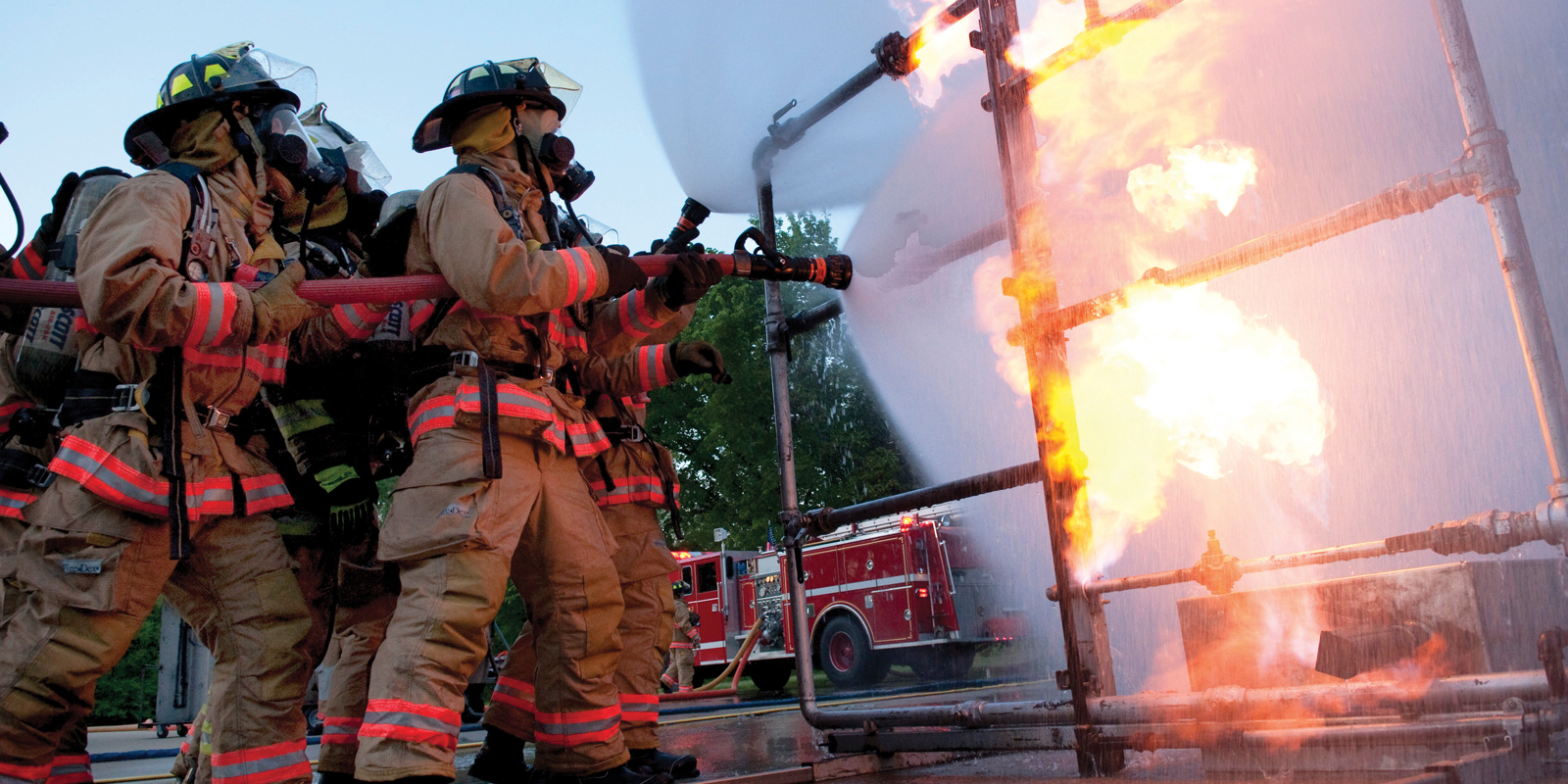Kansas Fire & Rescue Training Institute hosts demonstrated ability event for training officers statewide

LAWRENCE (April 20, 2021) – Firefighting is an inherently dangerous job. Firefighters must be well-trained for safe operations, but they also must be well-trained to deliver exceptional service to customers – those calling 9-1-1 and anyone in need of help.
On April 14 and 15, the Montana State University Fire Services Training School (FSTS) conducted an Instructor C training event for the Kansas Fire & Rescue Training Institute (KFRTI). The two-day event, led by Brian Crandell and John Culbertson, trained instructors in FSTS’s demonstrated ability methodology, also called training in context, which emphasizes a performance-based assessment of skills.
Crandell wrote his doctoral thesis on demonstrated ability, which FSTS has been employing in their training process for 30 years.
Training officers from the Kansas City, Kansas Fire Department, Johnson County Consolidated Fire District No. 2, Topeka Fire Department, Coffeyville Fire Department and Kansas Fire & Rescue Training Institute were represented at the event.
“For too long, the U.S. fire service has trained firefighters using passive learning techniques,” said Kelly McCoy, director of KFRTI. “Our goal for this training was to break away from that paradigm and move toward a hands-on, performance-based instructional model.”
Demonstrated ability takes students through a “crawl, walk, run” approach to training, showing them best practices, coaching them through the process and evaluating their ability to conduct job performance requirements in a real-life context. The process is repeated until instructors are confident in students’ ability to complete the task effectively.
This model’s adaption promotes community health and safety by ensuring firefighters can exemplify mastery of all necessary skills in a single evolution, rather than a written test or random sampling of skills in isolation, to prepare a more competent workforce.
“It’s refreshing to see a group of fire training instructors so willing to consider a different model of training firefighters that will benefit Kansans,” said Culbertson. “I think the citizens firefighters serve are going to see great value in this training model.”
McCoy says the event exceeded his expectations and that he looks forward to partnering with FSTS again in the future.
“We are thankful to Dr. John Culbertson and Dr. Brian Crandall of Montana Fire Services Training School for sharing their years of education and experience with the Kansas fire service. We would also like to thank Fire Chief Mike Baxter, Wakarusa Township Fire Department, for hosting our training event,” said McCoy. “We believe this paradigm shift in the learning process will lead to safer communities in Kansas.”
What did the attending instructors have to say about the event and how it will help change their training for the better?
Shon Price, Training Officer, Coffeyville Fire Department: “This class has caused me to reflect on how I have trained firefighters in the past. In the past, I have not always connected the training to the what and the why. I am going to change that in my training. Firefighters will know what the work is we are training for and why it’s important.”
Jarred Hammond, Training Officer, Topeka Fire Department: “There are so many takeaways, things I can use tomorrow in training firefighters. Immediately this training course is going to matter.”
James Zeeb, Training Chief, Kansas City, Kansas Fire Department: “I have wondered, how do I get away from, point, click, and read the slides in training environments and engage firefighters. Following this course, I will be a champion for training in context and excited to see the changes in Kansas fire service training.”
Jennifer Johnson, Kansas Fire & Rescue Training Institute: “Training has to be about the work and doing the job. We have to make sure we are measuring the things that are right. We are going to slowly begin to move the training system in Kansas toward a learning-in-context model.”
To learn more about demonstrated ability, review these articles from EMS1 and Firefighternation.
About the Kansas Fire & Rescue Training Institute
The Kansas Fire & Rescue Training Institute (KFRTI) was created in 1949 by Kansas law to provide training for the Kansas Fire Service. The Institute is a dynamic organization providing training services through a "Mobile Fire Academy" concept. This concept is designed to accommodate local needs through training delivered anytime, anyplace or anywhere in Kansas. KFRTI is a unit of University of Kansas Lifelong & Professional Education.





